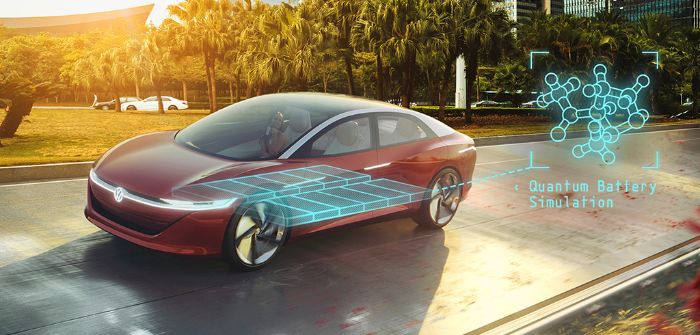For the first time, engineers at Volkswagen have succeeded in simulating industrially relevant molecules using a quantum computer. This is especially important for the development of high-performance electric vehicle batteries.
Engineers successfully simulated molecules such as lithium-hydrogen and carbon chains. Now they are working on more complex chemical compounds. In the long term, the aim is to simulate the chemical structure of a complete electric vehicle battery on a quantum computer. Their objective is to develop a tailor-made battery, a configurable chemical blueprint that is ready for production.
Martin Hofmann, CIO of the Volkswagen Group, said, “We are focusing on the modernization of IT systems throughout the group. The objective is to intensify the digitization of work processes – to make them simpler, more secure and more efficient and to support new business models.
“This is why we are combining our core task with the introduction of specific key technologies for Volkswagen. These include the Internet of Things and artificial intelligence, as well as quantum computing.”
Using newly developed algorithms, Volkswagen engineers have laid the foundation for simulating and optimizing the chemical structure of high-performance electric vehicle batteries on a quantum computer. In the long term, such a quantum algorithm could simulate the chemical composition of a battery on the basis of different criteria such as weight reduction, maximum power density or cell assembly, and provide a design which could be used directly for production. This would significantly accelerate the battery development process, which has been time-consuming and resource-intensive to date.
Florian Neukart, principle scientist at Volkswagen’s Code Lab in San Francisco, California, commented, “We are working hard to develop the potential of quantum computers for Volkswagen. The simulation of electrochemical materials is an important project in this context.
“In this field, we are performing genuine pioneering work. We are convinced that commercially available quantum computers will open up previously unimaginable opportunities. We intend to acquire the specialist knowledge we need for this purpose now.”
To simulate electrochemical materials, VW’s IT experts are co-operating closely with Volkswagen Group’s research department. They have already successfully simulated key molecules such as lithium-hydrogen and carbon chains, on a quantum computer. They are now working on more complex chemical compounds.


